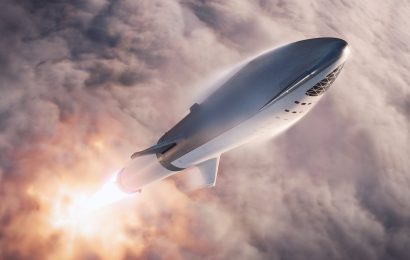The Nobel Prize in Physics has been jointly awarded to James Peebles, Michel Mayor and Didier Queloz for their work in furthering our understanding of the universe.
In the ceremony held in Stockholm on Tuesday, one half of the prize was awarded to Peebles for “theoretical discoveries in physical cosmology,” and the other half to Mayor and Queloz for “the discovery of an exoplanet orbiting a solar-type star.”
“This year’s Nobel Prize in Physics rewards new understanding of the universe’s structure and history, and the first discovery of a planet orbiting a solar-type star outside our solar system,”
tweeted the Nobel committee.
Ulf Danielsson, a member of the Nobel Committee, commented: “Both these prizes… tell us something essential, something existential about our place in the Universe.”
“The first one, tracing the history back to an unknown origin, is so fascinating. The other one tries to answer these questions about: ‘are we alone – is there life anywhere else in the Universe?'”
Winnipeg, Canada-born James Peebles was honoured for his contributions to the understanding of the evolution of the Universe and Earth’s place in the cosmos.
With others, he predicted the existence of cosmic microwave background (CMB) radiation, the so-called afterglow of the Big Bang.
By studying the CMB, scientists have been able to determine the age, shape and contents of the Universe.
“Cosmic background radiation was discovered in 1965, and turned out to be a goldmine for our understanding of how the Universe developed from its early childhood to the present day. The discoveries have forever changed our conceptions of the world.”
said Mats Larsson, chair of the Nobel physics prize committee
Over two decades Peebles developed a theoretical framework that forms the basis of our understanding of the history of the universe, according to the committee.
His models reveal that we only know about 5% of the content of our universe, with the remaining 95% consisting of unknown dark matter and dark energy, according to a press release.
“This is a mystery and a challenge to modern physics,” reads the release.
Mayor and Queloz focused their research on looking for unknown worlds in the Milky Way, and in 1995 discovered the first planet outside our solar system.
51 Pegasi b is a gaseous ball similar to Jupiter, according to the release, and its discovery “started a revolution in astronomy.”
Mayor is from Switzerland and teaches at the University of Geneva, while countryman Queloz teaches at the University of Geneva and the University of Cambridge.
Donna Strickland previously won back in 2018
In 2018 the Nobel Prize in Physics was awarded to a woman for the first time in 55 years, and for only the third time in its history.
Donna Strickland, a Canadian physicist, was awarded last year’s prize jointly with Gérard Mourou, from France, for their work on generating high-intensity, ultra-short optical pulses. They shared the award with an American, Arthur Ashkin, who at 96 becomes the oldest Nobel Laureate, for developing “optical tweezers.”
Both inventions had “revolutionized laser physics,” the Royal Swedish Academy said.
Source: edition.cnn.com



